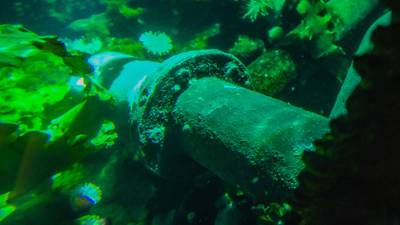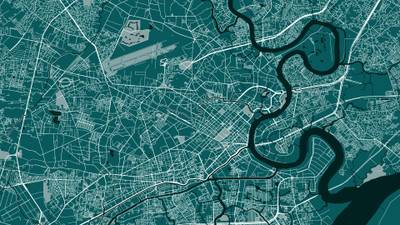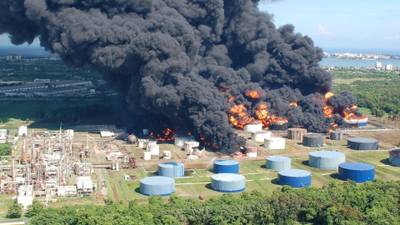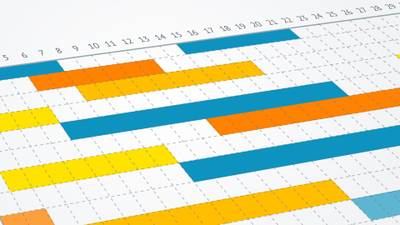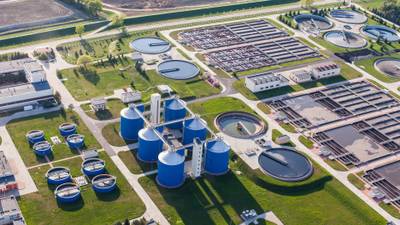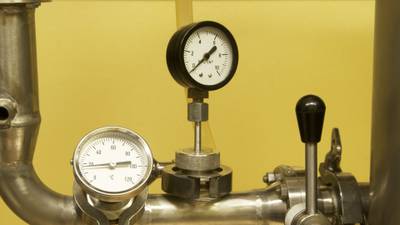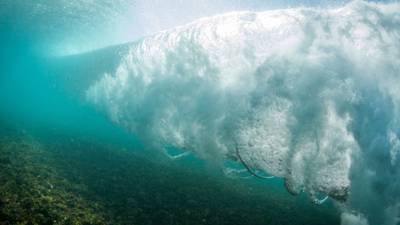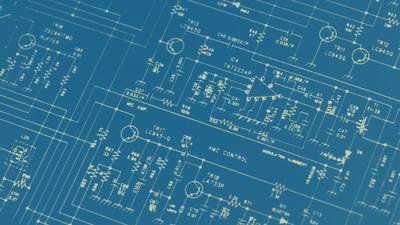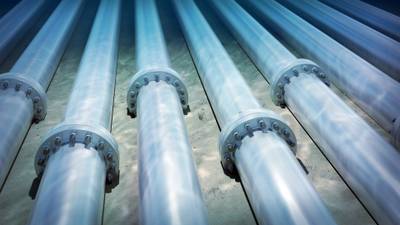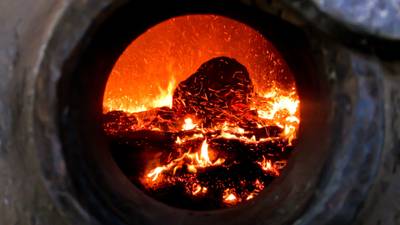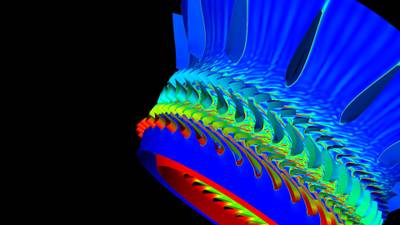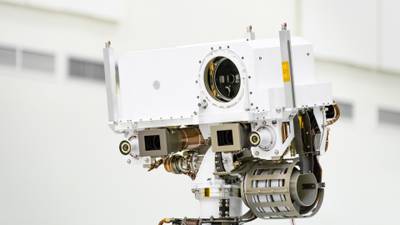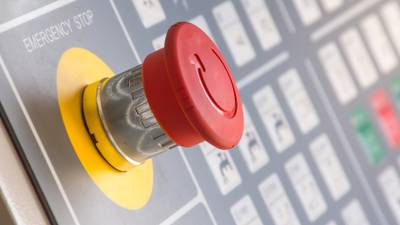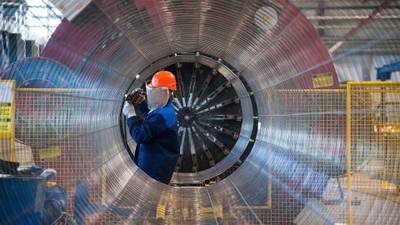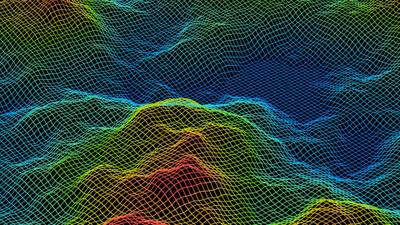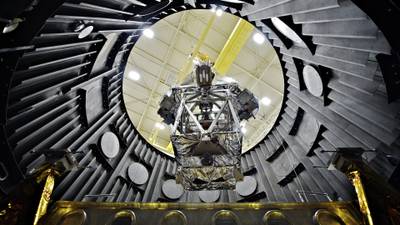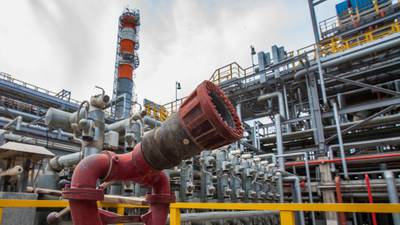Ongoing developments in safety and reliability remain a primary focus for the oil and gas industry.
Ensure you’re up to speed with Fire and Explosion Engineering best practices with this online short course designed for graduate engineers.
Receive advanced education and training in assessing the loads that result from fires and explosions – and learn how to design structures that can withstand them.
Learn from the best in the business, with a university at the forefront of teaching and professional training for ambitious engineers.

Build credits towards a Masters degree
This online course is part of:
- MSc Advanced Mechanical Engineering
- MSc Advanced Structural Engineering
- MSc Safety and Reliability Engineering
You can use the credits you earn on this short course towards any of these MSc qualifications.
What you’ll study
Hydrocarbon fires and explosions produce extreme loading on engineering components. Structural steels lose their strength and stiffness well below the temperatures associated with hydrocarbon fires.
In this course, you’ll learn how to design safety-critical elements that can withstand both the temperatures and blast overpressures caused by fires and hydrocarbon explosions.
You’ll be shown how to use simple models to assess the loading that results from fires and explosions. Structural elements will be analysed to illustrate the design procedures that are required to prevent escalation and to design against major accident scenarios.
You’ll cover the following modules:
- Introduction to fire and explosion science
- Hydrocarbon fire and explosions
- Heat transfer
- Fire dynamics
- Material and structural performance in fire and high-rate loading
- Fire-resistant design of structures
- Practical applications of fire and explosion engineering
- An introduction to fire and explosion hazard management
- Deflagration and detonation
- The dynamic of deformation and failure of solids and structures
- Estimation of explosion overpressures in air
By the end of this course, you’ll be able to…
-
Discuss fire and explosion science and the classifications of fires and explosives.
-
Describe the loading that fire and explosions produces on structures.
-
Evaluate the structural and material response to extreme loading scenarios.
-
Select materials and design structures to promote safety in such events.
How you’ll study
Online learning
This distance-learning Fire and Explosion Engineering course is delivered flexibly, 100% online.
You can learn with us anywhere in the world, no student visa required, and manage your study hours to suit you.
Your teaching
This course is taught at Masters level.
Teaching is delivered through MyAberdeen, our online Virtual Learning Environment (VLE). It holds all the materials, tools and support you’ll need in your studies. Take a look around MyAberdeen.
You can access your learning materials on computer, smartphone and laptop, 24 hours a day. You’ll find a range of resources available, including:
- online lectures and tutorials
- reading materials
- discussion boards with your tutors and peers
- the online resources of our award-winning Sir Duncan Rice Library.
Your tutors
This Masters-level short course is delivered by our School of Engineering.
You’ll learn from highly qualified and experienced tutors in this field and from industry itself.
Industry input
Your course content is developed and reviewed by an Industry Advisory Board. This group of experienced professionals ensures your learning is informed by the latest industry trends, technology, and career opportunities.
You’ll be assessed online. Assessment will take place throughout the teaching term.
Types of assessment for this course may include:
- coursework
- online quizzes
- timed online open-book assessments.
Assessment deadlines
Your assessments will have submission deadlines, either during or at the end of the course. Your course coordinator will let you know when your assessment deadlines are, so you can plan your study time accordingly.
The course totals approximately 150 hours of study and assessment time. That’s around 10 – 15 hours per week.
This is an indicative guide to the time required for a typical student at this level to achieve the learning outcomes. This includes time for independent study, as well as teaching and assessments.
You can largely set your own study hours each week to cover the materials. MyAberdeen is available 24/7, so you can log in and study when it suits you.
Activities at fixed times
There may be some activities scheduled for fixed times. This could include coursework and assessments with deadlines, or online meetings with your tutor. Otherwise, you can access and work through the course at your convenience.
Our first-class support structure will ensure that you aren’t alone in your studies. You’ll have contact with your course coordinator throughout your course. This could be by email, MyAberdeen, online call, or phone. You can use social media and discussion boards to chat with your fellow students too.
We provide a wide range of services to support you in your studies and beyond:
- Careers and Employability Service
- Disability support
- IT support
- Library support
- Student Support Service – help with finances, stress, wellbeing and non-academic issues
- Student Learning Service – study support, with advice sessions available via phone or Skype
- Aberdeen University Students’ Association (AUSA) – run by students for students
- Toolkit – clever apps and free training that can make your study life easier
Wherever you are in the world, you’ll feel part of our very special Aberdeen learning community.
Your course coordinator
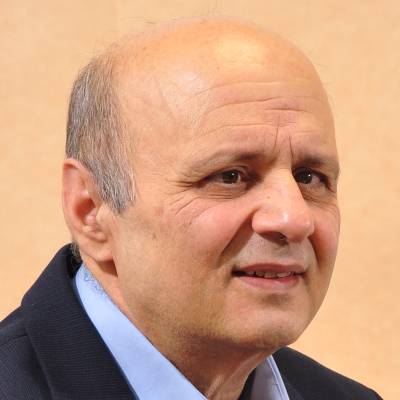
Dr Majid Aleyassin
Majid is a Lecturer in Mechanical Engineering, and your course coordinator. He’s been with our School of Engineering as a Researcher and Lecturer since 2006. Majid holds a PhD in Mechanical Engineering and his research interest is in the field of applied dynamics of solids and structures.
View Majid’s profileWhere this will take you
Towards a Masters
You’ll earn 15 credits at Masters level (SCQF Level 11) with this course. You can use these credits towards our:
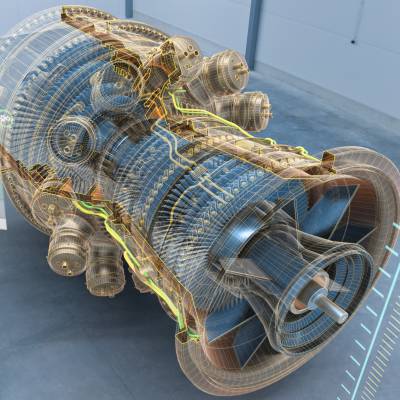
Masters in Advanced Mechanical Engineering
Earn your MSc in Advanced Mechanical Engineering online. Study flexibly and build the advanced skills demanded by the world’s leading employers in the automotive, energy, defence, aerospace, and manufacturing sectors.
View MSc Advanced Mechanical Engineering
Masters in Advanced Structural Engineering
Prepare for a career in the aerospace, automotive, and energy sectors, as well as civil, structural, and construction, with our flexible online Masters degree.
View MSc Advanced Structural Engineering
Accredited Masters in Safety and Reliability Engineering
Become a world-class safety engineer, wherever you’re based, with this accredited online MSc. Train online with internationally experienced safety engineers and learn direct from industry.
View MSc Safety and Reliability EngineeringBuild your learning
We offer a range of specialist online Engineering and technology courses you can use to build your skills.
Many carry credits you can build up into postgraduate qualifications, including Masters degrees:
Careers
Your employer or professional institute may recognise this course for Continuing Professional Development (CPD). Talk to your employer or institute to find out more.

Free career support
Access our free careers service while you study.
- 1:1 appointments
- CV checks
- Interview prep
- Job opportunities
Entry requirements
Entry requirements
We welcome students from all over the world.
See the minimum entry requirements above. If you do not have qualifications from the UK, check equivalent qualifications from your country.
Visa requirements
You do not need a student visa to study online with us.
English language requirements
Teaching is delivered in English.
If English is not your first language, use our English requirements checklist to see if you need to provide evidence of your English language skills when you apply.
English language tests and scores
If you do need to provide English language test scores, these are the tests and minimum scores we accept for this course or degree.
These are our Postgraduate Standard requirements.
IELTS Academic, IELTS UKVI Academic, and IELTS Online (not IELTS Indicator or IELTS General Training)
- 6.5 overall
- 5.5 for listening, reading and speaking
- 6.0 for writing
TOEFL iBT and TOEFL iBT Home Edition
- 90 overall
- 17 for listening
- 18 for reading
- 20 for speaking
- 21 for writing
- TOEFL DI code is 0818
Cambridge English: B2 First, C1 Advanced, or C2 Proficiency
- 176 overall
- 162 for listening, reading and speaking
- 169 for writing
LanguageCert Academic/LanguageCert Academic SELT
- 70 overall
- 60 for listening, reading and speaking
- 65 for writing
LanguageCert International ESOL B2 Communicator (Written and Spoken) – Online / In-centre
- Overall High Pass
- 33 for listening, reading and speaking
- 38 for writing
Oxford ELLT Digital – English Language Level Test Online
- 7.0 overall
- 5.0 for listening, reading and speaking
- 6.0 for writing
PTE Academic (online test not accepted)
- 62 overall
- 59 for listening, reading, speaking and writing
Duolingo – tests taken from 1 July 2024 onward
- 120 overall
- 95 for listening, reading and speaking
- 105 for writing
University of Aberdeen English Pre-sessional Programme (PSE)
- Pass
- Valid for one year. Refresher can be offered if out of date
Pre-sessional academic English preparation programmes undertaken at other UK universities
- Pass at an equivalent of 6.5 (C1)
- B2 in all four skills
- Certification must be within one year prior to the start of your course
For full information about language requirements, see our English Language Requirements page.
For this course, you’ll apply through our Applicant Portal. It allows you to upload relevant qualifications and documents. Our admissions team will then review these and contact you.
Documents you’ll need to apply for this course
- Degree transcript
- Personal statement
- CV
Apply now
Start with our step-by-step guide. It explains degree transcripts, what to write in your personal statement and how to use the Applicant Portal.
Apply as early as you can. This is so we have time to review your application and get a decision to you. We also want to ensure you have time to enrol before teaching starts.
September 2024 intake
For our September 2024 intake, the application deadline is 8 September 2024.
You will need to accept your offer and provide any outstanding documents to meet the conditions of your offer by 15 September 2024.
Teaching starts on 23 September 2024.
You will need access to:
A computer (PC, laptop or Mac) operating on either:
- Windows 10 or later
- macOS 10.15 (Catalina) or later.
Most teaching materials are smartphone- and tablet-friendly. But we recommend a proper laptop or desktop for completing assignments comfortably.
Reliable internet access
We recommend:
- a wired connection
- a minimum download speed of 2 Mbps so you can take part fully in live sessions.
Speakers or headphones
- We recommend a headset with built-in microphone and earphones if you’re likely to study in an environment with background noise.
- A webcam is optional, but you may like to use one for some interactive sessions.
Software
We’ll give you access to Office365 applications. This means you can use online versions of Microsoft Word, Excel, and PowerPoint and install these programs on up to five personal devices.
If your course requires specialist software, we’ll provide you with access to this and a licence that lasts throughout your studies.
See our detailed IT requirements for more information.
When you study with us, you can expect a first-class support structure so that you’re never alone in your studies.
But learning online does mean you have to motivate yourself and manage your own time.
Your most important commitment will be time – the time to work through, reflect on and understand your teaching materials.
Before you start a course that involves a high degree of independent study, we recommend looking at the time you will be able to devote to your studies each week:
- Be realistic
- Create a weekly schedule as a guide
If you have any questions about studying online, get in touch with our friendly team. We’re here to help.
Fee payment
Your course fee needs to be paid in full before you start your course.
We accept payment via Visa Debit, Visa Credit and Mastercard.
Ways to save
You may be able to get help funding this course via:
- discounts – if any discounts are available for this course, they’ll appear in the section below
- employer sponsorship – we accept full and partial fee payments from sponsors.
Find out more about funding options.
Student card
All our students are entitled to a University of Aberdeen student card. This gives you access to a range of student discounts around the city and online.
Learning resources
Access to all the essential books and resources you need are included in your tuition fee. They’ll be made available to you online and you do not have to buy your own copies.
We also provide optional recommended reading lists. Many of these resources are available electronically through our library, although purchases may be required if you wish to read the full list.
Printing
You may want to set aside a small budget for printing, depending on how you like to work.
The minimum requirements for this course are:
- a 2:2 UK honours degree (or equivalent) in Engineering.
We’re also happy to consider other relevant qualifications, for example in Mathematics and Physics, or professional experience with supportive references.
Mathematical skills
This course requires mathematical skills in the following areas:
Foundation Mathematics
- Arithmetic; algebra; equations; graphs; linear equations and simultaneous linear equations; polynomial equations; trigonometry; differentiation; integration; functions
Differentiation and Partial Differentiation
- Rates of change form the basis of much of mechanics and the dynamics of engineering systems.
Integration - Direct and Approximate Solutions
- Application of integration to engineering problems including area under a function; locating centroids; moments of inertia; second moments of area.
Apply for this course



